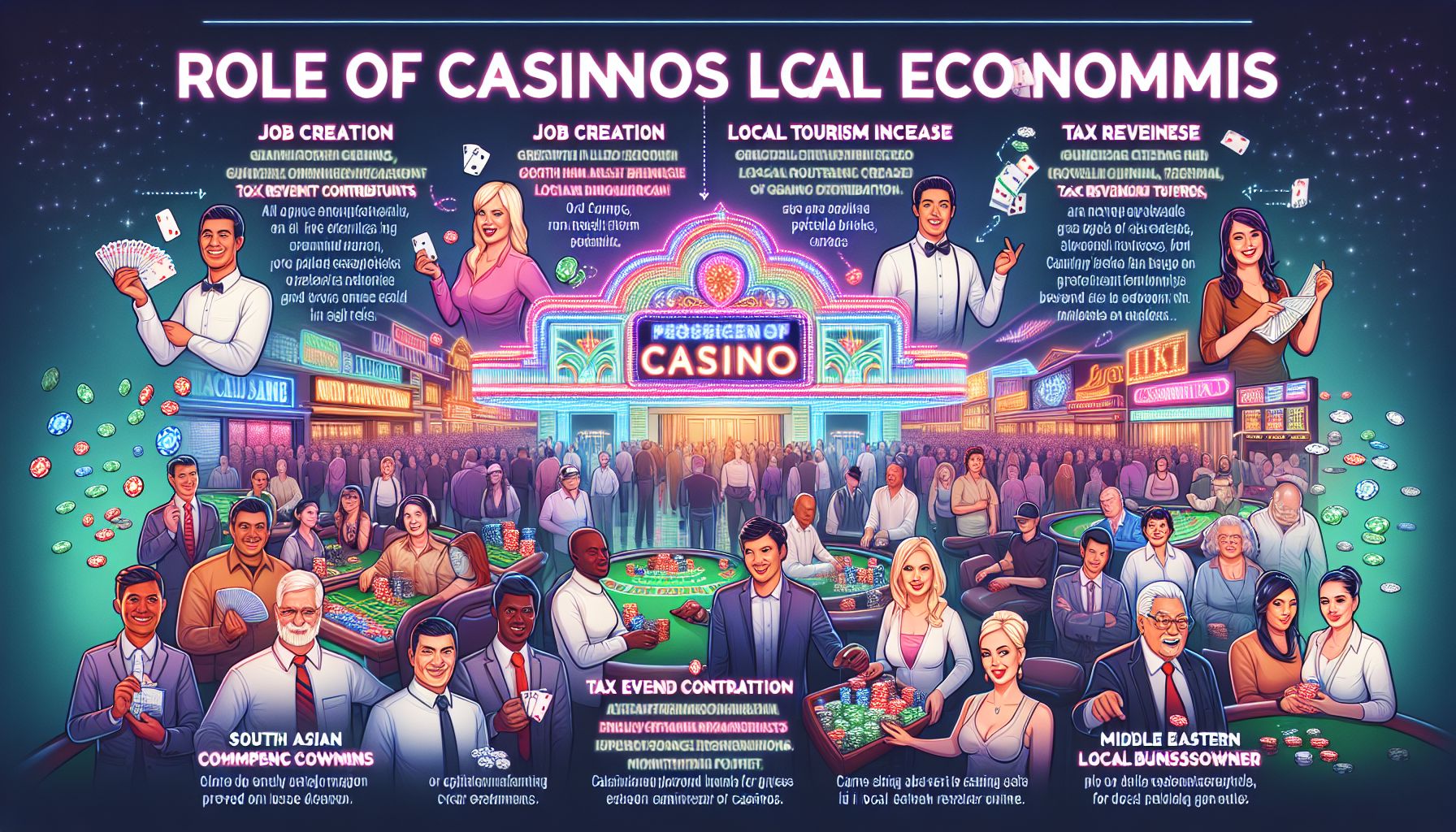Casinos are often seen as popular entertainment destinations, with their glitzy lights, extravagant shows, and endless rows of slot machines. However, there is much more to these establishments than just providing a fun experience for visitors. Casinos also play a significant role in the economy of their respective communities.
In this article, we will take a closer look at the impact of casinos on local economies. We will explore the various ways in which casinos contribute to the growth and development of their surrounding areas, as well as the potential drawbacks that come with it.
The Rise of Casinos in Local Economies
The rise of casinos in local economies can be traced back to the 1990s, when the United States saw an unprecedented expansion of the gambling industry. The trend was sparked by the passing of the Indian Gaming Regulatory Act in 1988, which gave tribes the right to operate casinos on their reservations. This led to the rapid growth of tribal casinos, with their profits skyrocketing from $100 million in 1988 to over $10 billion in 2001.
In addition to tribal casinos, state-sanctioned commercial casinos also began to pop up in various locations across the country. Today, there are more than 1,000 commercial casinos and 500 tribal casinos in the United States alone.
The Economic Impact of Casinos
The economic impact of casinos on local economies is multifaceted, with both positive and negative effects. Let’s take a closer look at some of these impacts.
Job Creation and Employment Opportunities
One of the most significant benefits of casinos for the local economy is job creation. According to the American Gaming Association, the gambling industry directly employs 522,000 people and indirectly supports an additional 1.8 million jobs. These employment opportunities provide a much-needed boost to the economy, especially in areas with high unemployment rates.
Moreover, the jobs created by casinos are not just limited to dealers and croupiers. From hotel staff, chefs, and bartenders to marketing, finance, and security personnel, casinos provide a wide range of employment opportunities for individuals with various skill sets.
Tax Revenues and Economic Development
Another significant contribution of casinos to the local economy is tax revenues. In 2019 alone, the gaming industry generated $10.3 billion in state and local taxes. These funds can then be used by the government for public services such as education, healthcare, and infrastructure development. This, in turn, supports the growth and development of the local community.
Moreover, the presence of a casino can also attract other businesses and investments, leading to further economic development. This can include new hotels, restaurants, and retail establishments, all of which provide employment opportunities and boost the local economy.
Tourism and Increase in Visitors
Casinos are often major tourist attractions, drawing visitors from far and wide. This can significantly boost the local economy by increasing the number of tourists and their spending in the area. For example, in 2019, Las Vegas, the gambling capital of the world, attracted over 42 million visitors, contributing to the city’s economy and supporting over 200,000 jobs.
Furthermore, many casinos offer packages and deals, which include not just gambling but also accommodation, dining, and entertainment options. This encourages visitors to stay longer and explore the local area, leading to increased tourism revenue.
Potential Drawbacks of Casinos in Local Economies
While casinos undoubtedly offer several economic benefits to their respective communities, there are also some potential drawbacks that must be considered.
Increase in Crime Rate
Opponents of casinos argue that the presence of gambling establishments can lead to an increase in crime rates in the surrounding area. This is mostly due to the large amounts of money involved and the easy availability of alcohol and other vices within the casino premises.
However, several studies have debunked this notion, with some even showing a decrease in crime rates in areas with casinos due to improved security and surveillance measures. Nevertheless, it is still a concern that must be addressed through proper regulation and enforcement.
Addiction and Social Costs
One of the most significant concerns surrounding casinos is the potential for gambling addiction and associated social costs. The American Psychiatric Association classifies gambling addiction as a mental disorder, with individuals who suffer from it experiencing severe financial, emotional, and social problems.
While casinos often implement responsible gambling measures and offer assistance to those struggling with addiction, it is still a challenge that must be carefully monitored and addressed.
Conclusion
In conclusion, casinos play a significant role in the economy of their respective communities. From job creation and tax revenues to tourism and economic development, the impact of casinos on local economies is widespread and varied.
However, it is essential to carefully consider the potential drawbacks and address them through proper regulation and enforcement. By doing so, we can ensure that the presence of a casino is a positive and sustainable contributor to the local economy.



